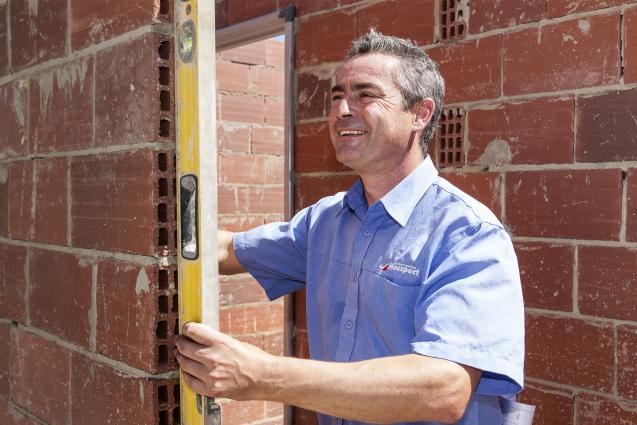
You Get What You Pay For: Benefits of Using Qualified Building Inspectors
You know how important it is to secure building inspections before purchasing, building or renovating your property, but do you make using qualified building inspectors a priority? It’s not uncommon for property owners to make hiring decisions without all the information they need, potentially leaving them vulnerable to the very issues they hired an inspector to avoid. When you hire an unqualified inspector at a discount price, you may save a bit of money in the short term. In the long run, though, you could very well end up spending more to address undetected problems with your property.
How to Tell if You’re Using a Qualified Building Inspector
The average property owner who is not employed within the building trades won’t usually know what qualifications they should look for in a professional building inspector. With a bit of research, though, it’s easy to ensure you’re making the right hiring decision. Before hiring any building inspector for your pre-purchase building inspection, stage construction inspection or anything in between, take a moment to ask:
•“Do You Have PI Insurance?” – Qualified building inspectors will carry professional indemnity insurance to protect not only themselves, but also their clients. Asking for proof of PI insurance is one of the first ways to determine the level of professionalism a particular inspector displays.
•“Are You Experienced?” – Ideally, any building inspector you hire will have a bare minimum of two years’ experience within relevant industries. Master builders, for instance, are obviously preferable to inspectors who don’t have a wealth of experience from which to draw during your inspection. This line of inquiry should also include training. Even a registered builder, architect or engineer will need to be trained in spotting defects and building faults to effectively serve as qualified building inspectors.
•“What is Your Track Record?” – Online reviews can be a valuable source of information about a particular building inspection company, but they’re not the last word in qualification. Ask an inspector how long they’ve been in the business, where their offices are located and how often they inspect your type of property. Remember, Commercial and new residential structures will have different qualities from heritage buildings; a qualified inspector is one who’s not only experienced in a general sense, but one who is also experienced in the area for which you’re hiring. You’ll also want an inspector or building inspection company with a proven track record and established reputation; not just a business card and a mobile number.
Protecting Your Investments with Professional Building Inspections
Whether it’s a residential or commercial property, your real estate investment is one of the biggest you’ll ever make over the course of your lifetime. That’s why it’s so important to work with experienced, qualified professionals every step of the way. Because the legally mandated minimum standards for building inspectors is a bit lackluster in comparison to many other trades, it unfortunately falls to you to vet each candidate you meet.
Don’t make decisions based upon the advice of an unqualified inspector in the hopes of saving some quick cash. All too often, you’ll pay for it in the end through expensive repairs and renovations. You do get what you pay for when you hire a building inspector, and using a professional is always a wise investment.
Houspect Building Inspections– Buy, Build, Invest and Sell with Confidence



